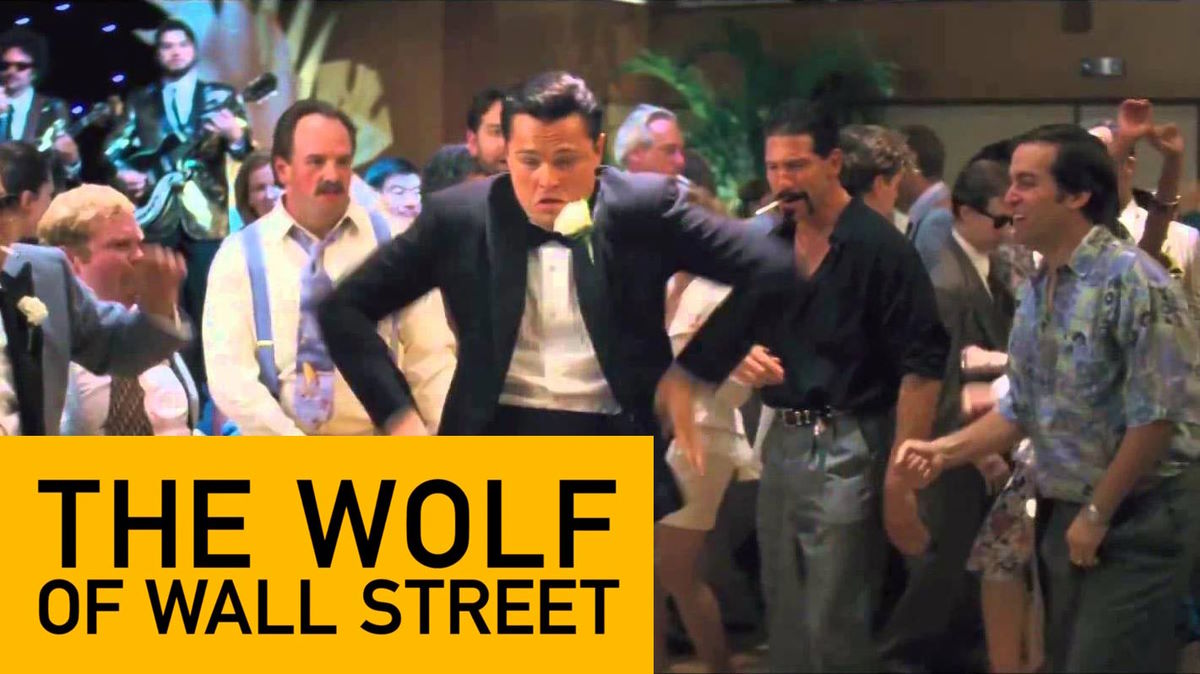The Wolf of Wall Street is a film that captures the zeitgeist of the 1990s and the excesses of the financial industry during that time. Directed by Martin Scorsese and starring Leonardo DiCaprio, the film follows the rise of Jordan Belfort, a New York stockbroker who becomes one of the richest and most powerful men on Wall Street through a series of illegal and unethical practices. The film’s satirical take on the excesses of the financial industry, coupled with Scorsese’s sharp direction and DiCaprio’s electrifying performance, has earned the film critical acclaim and a place in popular culture.
However, beyond its entertainment value, “The Wolf of Wall Street” also serves as a cautionary tale about the dangers of unchecked ambition and the importance of personal growth. The film highlights the pitfalls of a life solely driven by ambition, revealing the negative consequences of neglecting one’s moral compass in pursuit of success. Through the character of Jordan Belfort, the film shows the transformative power of personal growth and the importance of taking responsibility for one’s actions.

Unchecked Ambition in The Wolf of Wolf Street
The film’s plot follows Jordan Belfort, who starts his career as a humble stockbroker and quickly rises through the ranks of a shady brokerage firm by manipulating his clients and evading the law. Belfort’s ambition knows no bounds, and he soon becomes a multi-millionaire, living a lavish lifestyle of drugs, alcohol, and excess.
However, Belfort’s unchecked ambition eventually leads to his downfall. His unethical business practices catch up with him, and he faces financial ruin, a prison sentence, and the loss of his family and friends. The film shows the consequences of living a life solely driven by ambition, highlighting the dangers of neglecting one’s moral compass in pursuit of success.

Personal Growth in The Wolf of Wall Street
Despite the film’s emphasis on the dangers of unchecked ambition, it also portrays a journey towards personal growth and redemption. Throughout the movie, we see Belfort’s character transform from a naive young man eager to make it in the world of finance to a cynical and ruthless tycoon. However, as he faces the consequences of his actions and spends time in prison, Belfort begins to reflect on his life choices and seek a path towards personal growth.
One of the most notable aspects of Belfort’s journey towards personal growth is the role of mentors and accountability. While in prison, Belfort meets Tommy Chong, who encourages him to take up public speaking and begin a career as a motivational speaker. Through his work, Belfort begins to take responsibility for his actions and offers a cautionary tale to others on the dangers of greed and excess.

The Dark Side of Ambition
“The Wolf of Wall Street” also sheds light on the negative effects of unchecked ambition, portraying greed, selfishness, and the disregard for the well-being of others as common pitfalls for those seeking success. Belfort and his associates view their clients as mere sources of profit, using high-pressure tactics to persuade them to invest in penny stocks and make a quick buck. The film highlights the ease with which people can become caught up in their own ambition, losing sight of their moral compass and the consequences of their actions.
Moreover, “The Wolf of Wall Street” also touches on the societal pressures that fuel ambition. In a culture that celebrates wealth and success, it can be easy to lose sight of what truly matters, leading to a disregard for the consequences of one’s actions. The film raises important questions about the role of ambition in our lives, and the need for balance and self-reflection.

Conclusion
“The Wolf of Wall Street” is a cautionary tale about the dangers of unchecked ambition and the importance of personal growth. While the film portrays the excesses and moral failings of the financial industry, it also offers a message of hope and redemption, highlighting the importance of taking responsibility for one’s actions and seeking a path towards personal growth.
As viewers, we can learn valuable lessons from “The Wolf of Wall Street,” whether it be the importance of integrity in our professional lives, the need to seek guidance from mentors, or the necessity of self-reflection in our pursuit of success. By reflecting on the film’s themes and messages, we can gain a better understanding of the complexities of ambition and the importance of striking a balance between our personal and professional goals.
Furthermore, “The Wolf of Wall Street” is just one example of the vast world of movies and TV shows that can offer us valuable insights into human behavior, societal issues, and personal growth. As viewers, we can continue to explore this world, seeking out stories that challenge our assumptions, broaden our perspectives, and inspire us to be our best selves.
In this sense, watching movies and TV shows can be much more than just a form of entertainment – it can be a means of personal development and growth. By engaging with the stories and characters we encounter on screen, we can learn valuable lessons about ourselves and the world around us, and use these insights to become better people.

